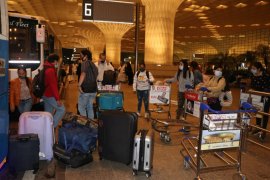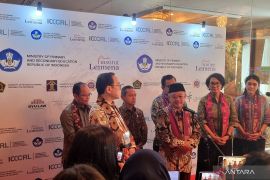The bombs exploded in busy districts in the south of the city, the same area targeted two and half years ago by militant gunmen who caused mayhem and bloodshed during a 60-hour siege that left 166 people dead.
"It is another attack on the heart of India, another attack on Mumbai," said the chief minister of the state, Prithviraj Chavan, who hinted at possible foreign involvement by saying it was a "challenge to Indian sovereignty."
The Home Ministry said at least 20 people had been killed and 113 injured, many of them seriously.
Home Minister P. Chidambaram told reporters in New Delhi that it was "a coordinated attack by terrorists," adding that "the entire city of Mumbai has been put on high alert."
The targets included a predominantly middle class residential area, a wholesale gold market, and a building housing diamond traders and jewellery shops.
All three explosions went off within a 15-minute period, starting at around 6:50pm (1320 GMT).
"It is clear that the attackers wanted to hurt as many as people as possible. A lot of people are injured," a minister in the Maharashtra state government, Chhagan Bhujbal, told reporters.
No group claimed responsibility for the attack, though suspicions initially fell on two Islamist groups that have targeted India in the past: the home-grown Indian Mujahideen and the Pakistan-based Lashkar-e-Taiba (LeT).
US President Barack Obama was among the first to condemn the bombings.
In November 2008, 10 militants from the LeT attacked multiple targets in Mumbai, including five-star hotels, in an assault known as "26/11" in India and often compared to the September 11 attacks on the United States.
India broke off a peace dialogue with Islamabad afterwards, blaming it for failing to crack down on the militant group. Talks between the two nuclear-armed rivals only resumed earlier this year. (*)
Editor: Kunto Wibisono
Copyright © ANTARA 2011




